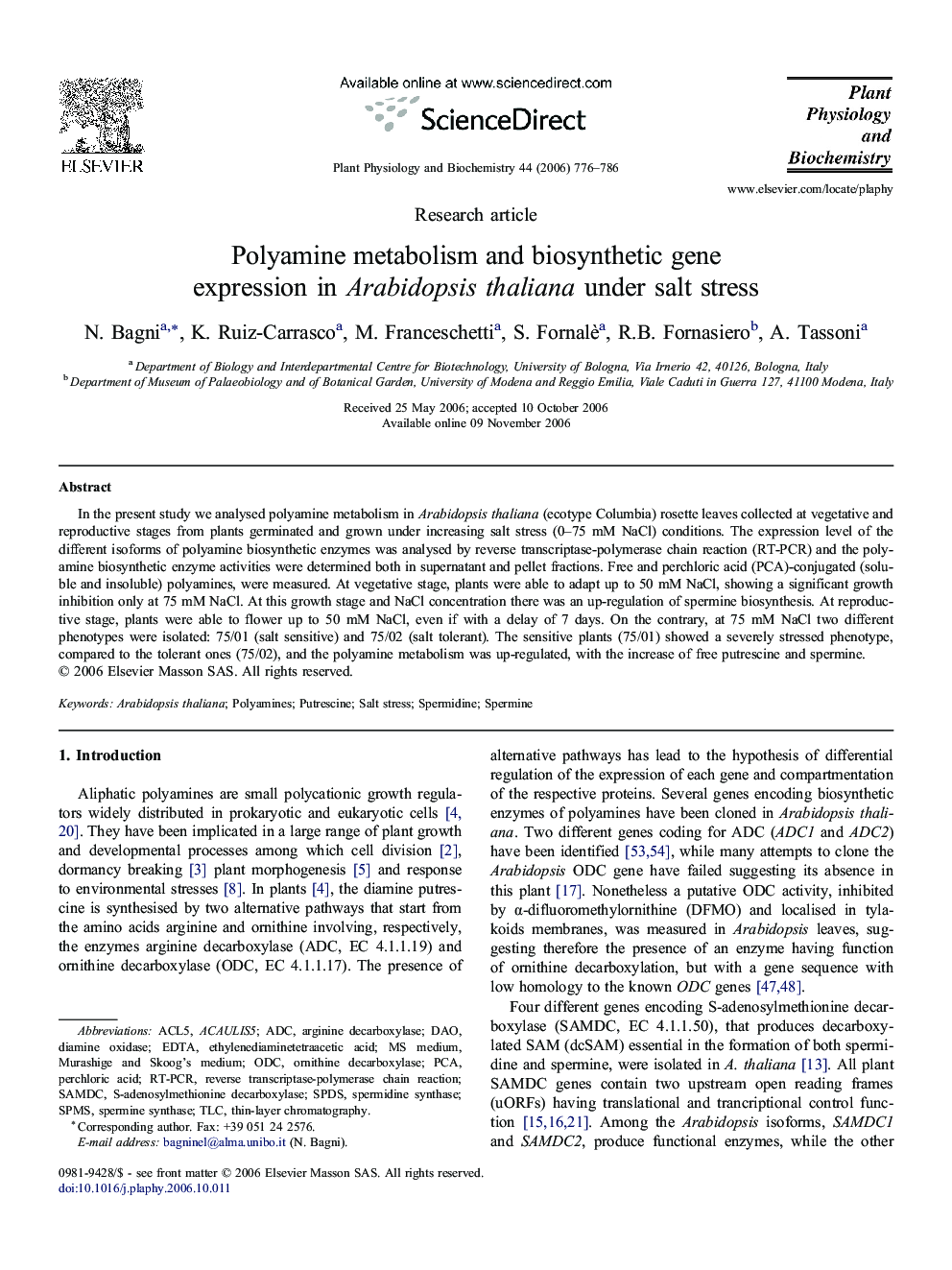| Article ID | Journal | Published Year | Pages | File Type |
|---|---|---|---|---|
| 2016619 | Plant Physiology and Biochemistry | 2006 | 11 Pages |
In the present study we analysed polyamine metabolism in Arabidopsis thaliana (ecotype Columbia) rosette leaves collected at vegetative and reproductive stages from plants germinated and grown under increasing salt stress (0–75 mM NaCl) conditions. The expression level of the different isoforms of polyamine biosynthetic enzymes was analysed by reverse transcriptase-polymerase chain reaction (RT-PCR) and the polyamine biosynthetic enzyme activities were determined both in supernatant and pellet fractions. Free and perchloric acid (PCA)-conjugated (soluble and insoluble) polyamines, were measured. At vegetative stage, plants were able to adapt up to 50 mM NaCl, showing a significant growth inhibition only at 75 mM NaCl. At this growth stage and NaCl concentration there was an up-regulation of spermine biosynthesis. At reproductive stage, plants were able to flower up to 50 mM NaCl, even if with a delay of 7 days. On the contrary, at 75 mM NaCl two different phenotypes were isolated: 75/01 (salt sensitive) and 75/02 (salt tolerant). The sensitive plants (75/01) showed a severely stressed phenotype, compared to the tolerant ones (75/02), and the polyamine metabolism was up-regulated, with the increase of free putrescine and spermine.
